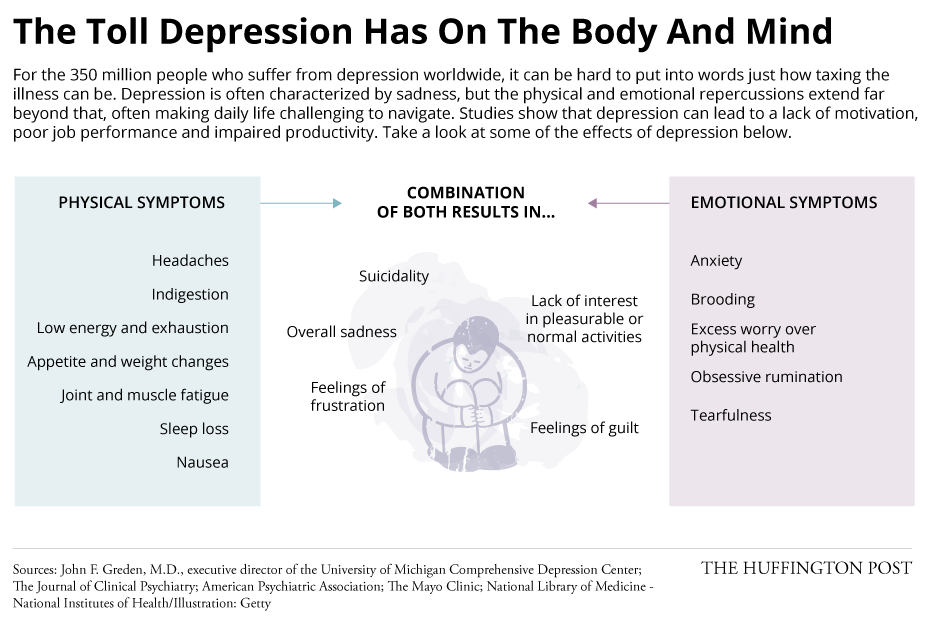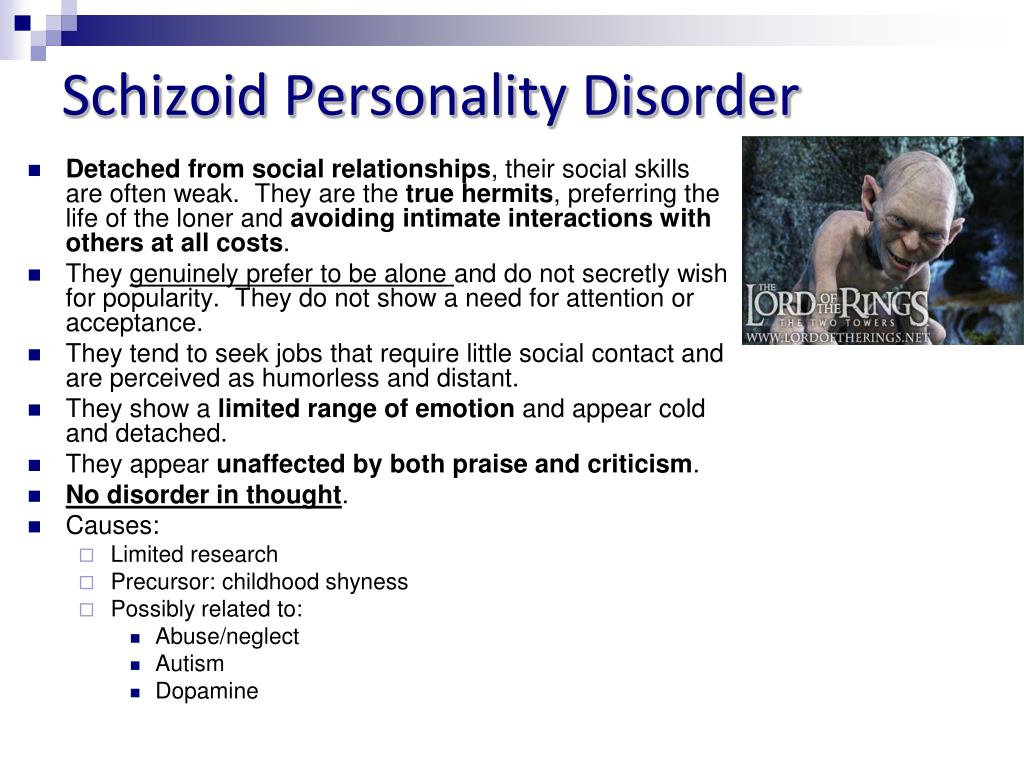Moving on from narcissistic relationship
Moving On and Moving Up from a Narcissist
Healing from a narcissist is a complicated process. It is a journey unlike any other that may cause you to question your sanity, your morals, and your beliefs. Narcissistic relationships are characterized by the constant whiplash of emotions and push/pull dynamics of control. This type of lifestyle can wreak havoc on psychological health and stability, which in turn makes a victim easier for the narcissist to control.
Unfortunately, this also gives the narcissist power to not only rewrite the narrative but also star as both the hero and the villain of the story. A narcissist’s victim is going to be too tired to keep up with maintaining the relationship and the happiness of the narcissist to worry about countering the stories being told. This opens the door for the narcissist to ruin their partner’s reputation and defame their character. Soon, you may find yourself isolated from friends and family, questioning your own recollection of events, and getting tied closer and closer to the narcissist.
It is possible to break free from a narcissist, although it won’t be easy and will take strong boundaries and consistency.
Setting Boundaries
Boundaries are necessary for establishing distance between you and the narcissist and creating a demand for respect. The boundaries are not built to keep people out, but rather to protect you from abuse. You have a right to say to the narcissist, “You cannot treat me like this” or “I do not have to listen to your abuse.” Boundaries can also be physical by using the blocking option on your phone, social media, and email accounts. Rules are another important aspect of boundaries which narcissists hate. Narcissists truly believe that they should be allowed to say or do whatever crosses their minds, regardless of the consequences for other people. They believe they are correct and truthful and that their narrative is gospel. Boundaries and rules stop the narcissist from controlling, or attempting to control, their victim.
Boundaries also encourage personal growth in the victim by reminding them that they are worthy of respect and kind treatment. By intentionally practicing self-care, you will realize the boundaries have protected you. One former victim recalls their ex-husband wanted to complete the divorce and then get back together. "He was leaving me destitute with no child support, demanding the house be sold, and wanting half ownership of my car and belongings, but then telling me he just wanted to 'close the chapter' with the divorce and restart our relationship after. He harassed every man I dated after we broke up and then said it was out of love and he missed me. Why would I put myself and the kids through a divorce to get back together? My ex ruined me financially and emotionally with the divorce, but looking back I realize it was to prepare me to go crawling back to him. He thought that by dragging me into the dirt, breaking me financially and taking everything away from me, I would have to go back to him. Mu boundaries and self-respect saved me from the continued abuse."
By intentionally practicing self-care, you will realize the boundaries have protected you. One former victim recalls their ex-husband wanted to complete the divorce and then get back together. "He was leaving me destitute with no child support, demanding the house be sold, and wanting half ownership of my car and belongings, but then telling me he just wanted to 'close the chapter' with the divorce and restart our relationship after. He harassed every man I dated after we broke up and then said it was out of love and he missed me. Why would I put myself and the kids through a divorce to get back together? My ex ruined me financially and emotionally with the divorce, but looking back I realize it was to prepare me to go crawling back to him. He thought that by dragging me into the dirt, breaking me financially and taking everything away from me, I would have to go back to him. Mu boundaries and self-respect saved me from the continued abuse."
Source: Anete Lusina/Pexels
Deciding on No Contact
No contact is a complete limit on the type of conversation allowed.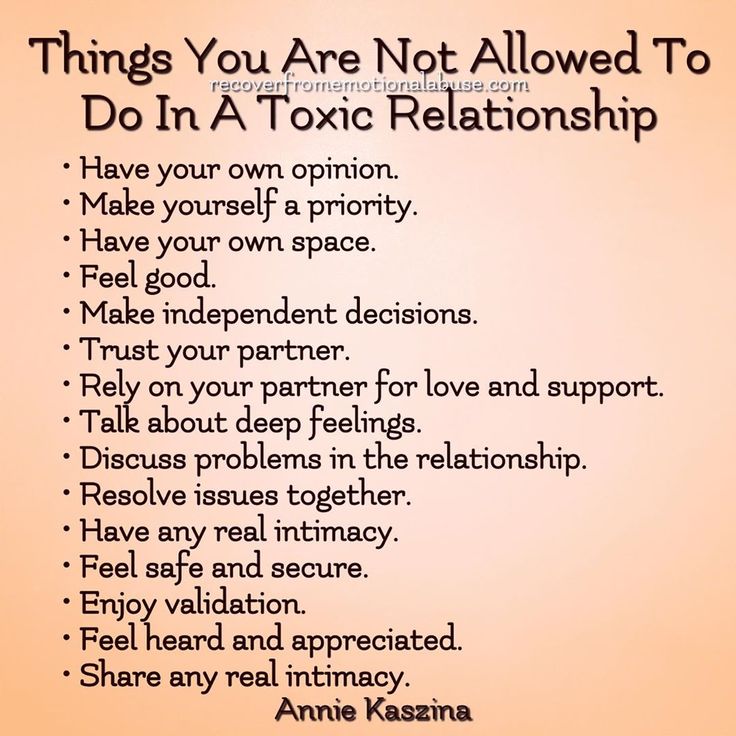 If possible, it is best to block a narcissist completely. Unfortunately, this is sometimes impossible if you share children together or are going through other legal matters. But you can still place strict limits on the type of conversation or contact allowed—for example, only allowing contact in case of emergencies with the children or limiting interactions to a parenting app.
If possible, it is best to block a narcissist completely. Unfortunately, this is sometimes impossible if you share children together or are going through other legal matters. But you can still place strict limits on the type of conversation or contact allowed—for example, only allowing contact in case of emergencies with the children or limiting interactions to a parenting app.
Narcissists often hate no contact and limited interaction and they may try anything to get a reaction out of their victim. The best thing you can do is to ignore them. They may alternate between insults and accusations to suddenly sending screenshots of old photos of you two or forgotten love notes. All you can do is ignore them and, if necessary, seek an order of protection from the legal system.
Don’t Expect Apologies
A narcissist will never apologize for their behavior, nor will they change. The person they present to you — the rage, the anger, the lashing out with insults and accusations and attacks when they don’t get what they want — is who they are.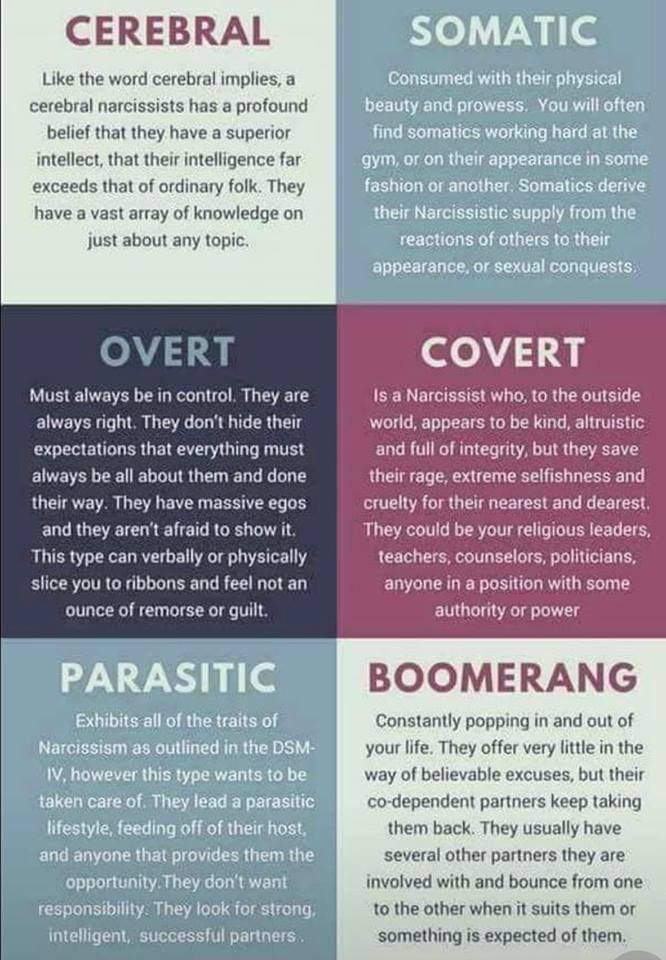 The calmness and peace and affection of the good moments only exists when they are served and catered to. It takes two people to make a relationship happy and functional, with both parties giving and receiving. One person constantly coddling the other or showering them with gifts and attention to maintain the peace is not a healthy relationship — it is servitude.
The calmness and peace and affection of the good moments only exists when they are served and catered to. It takes two people to make a relationship happy and functional, with both parties giving and receiving. One person constantly coddling the other or showering them with gifts and attention to maintain the peace is not a healthy relationship — it is servitude.
A victim will never receive an apology from their narcissist. Likewise, a narcissist will never believe they need to change or make amends for their behavior. Instead, they will project all the blame and fault onto their victim. The best thing a victim can do is practice self-forgiveness and self-care to move on and heal.
Getting Outside Help
A good therapist or life coach is an important part of your healing plan. A properly trained counselor can encourage you to grow, change for the better, and improve your thinking. Beware counselors who support your desires to stay stagnant or don't challenge your negative thinking.
Source: Cottonbro/Pexels
Find and Embrace Gratefulness
Life is scary and complicated and messy, but it is also beautiful and funny and full of surprises. Whether you lost six months or 15 years to a narcissist’s control, you have to remember you are now free of that and life is — once again — full of opportunities. In your bad moments, focus on your breathing for several minutes and identify five people or pets that you love and love you in return. When faced with a challenge or a fork in the road, choose the path that will lead you to growth and the bigger picture. If one option means you stay small and quiet and unappreciated, turn away. Embrace the fear of the unknown, turn your back on the abuse, and see where the new path takes you.
How To Get Over A Narcissist: 11 Essential Steps
Just because they treat you like garbage doesn't mean it's easy to get over a narcissist. In fact, this type of breakup is often one of the hardest to move on from.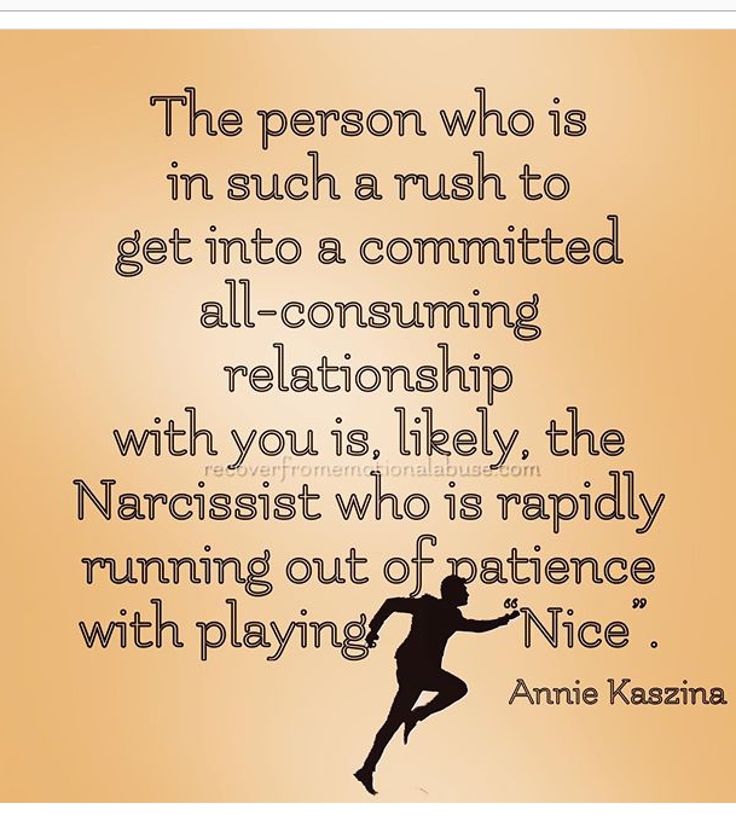
You feel up and down, over and over—it's as much of a roller coaster as your relationship itself. So here's exactly how to get over a narcissist, once and for all.
What is a narcissist?
A narcissist is someone who has narcissistic personality disorder (NPD), a clinically diagnosed personality disorder characterized by a grandiosity, a need for admiration, and a lack of empathy toward other people. In short, it's someone who believes they're better than everyone else.
1.
Stop obsessing
Trying to have a relationship with a narcissist is nearly impossible, so you spent a lot of time analyzing their behavior and character to try and make sense of the curve balls they kept throwing you.
After you leave your abusive relationship, this habitual pattern of analysis will continue until you force it to stop.
Whenever thoughts about what's wrong with your ex arise, remind yourself that you are no longer concerned with this person and gently encourage your mind to think about something else.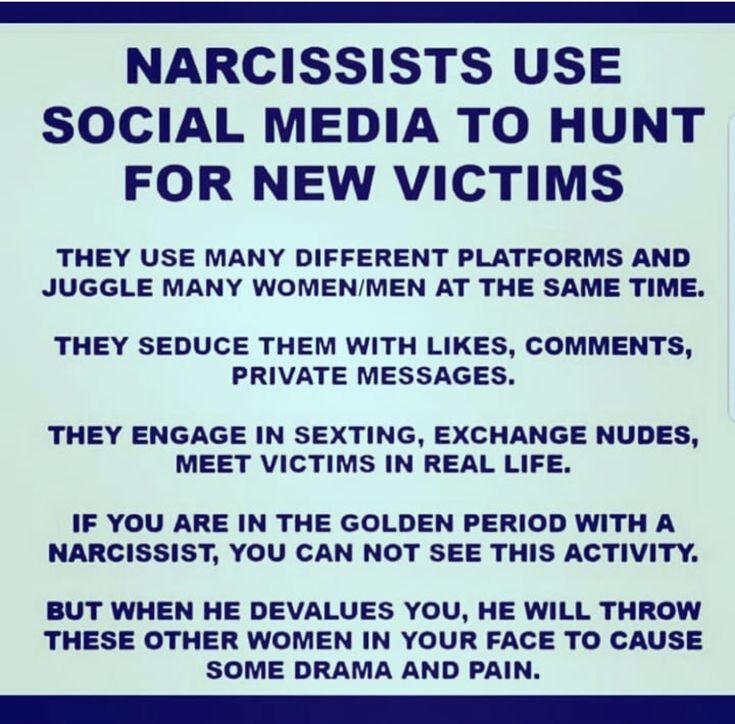 Do this again and again. Most experts say it takes three months to change a habit.
Do this again and again. Most experts say it takes three months to change a habit.
Advertisement
This ad is displayed using third party content and we do not control its accessibility features.
2.
Avoid trying to rationalize
To get through all those dysfunctional trials with your narcissist, you had to make excuses for their behavior, minimize their abuse, reinterpret their lies, and tiptoe around their self-delusions, in order to keep the peace and justify staying with them. When you miss them now—and you will—you're going to start rationalizing again, thinking, "Oh, they're not so bad."
Don't fall for it. Remind yourself over and over why you left to avoid getting manipulated by your narcissistic ex or, worse, ending up dating them again.
The best way to do this is to maintain zero contact. Don't call or text, and block them on social media. There's a reason the no-contact rule is advice given by most experts. We'll explain that further at the end of this list.
3.
Find ways to cope with your anxiety
Your narcissist probably kept you on edge for months or years, and your nervous system is likely still firing along those lines. Leaving may also be feeding into new stresses or fears, making your anxiety even worse. On top of all that, sex has stopped, so you don't have the dopamine and oxytocin that was helping keep your head above water.
Long, slow deep breathing, yoga, dancing, swimming, and other types of exercise. Do something every day, every time you need it. (Here are a few ways to practice self-care after a breakup.)
Advertisement
This ad is displayed using third party content and we do not control its accessibility features.
4.
Keep busy
With narcissists, a relationship is always about power. They have it; you don't. You scurry around trying to normalize everything, but you never succeed because they want to keep you scurrying, so they can jerk your chain whenever they feel like it.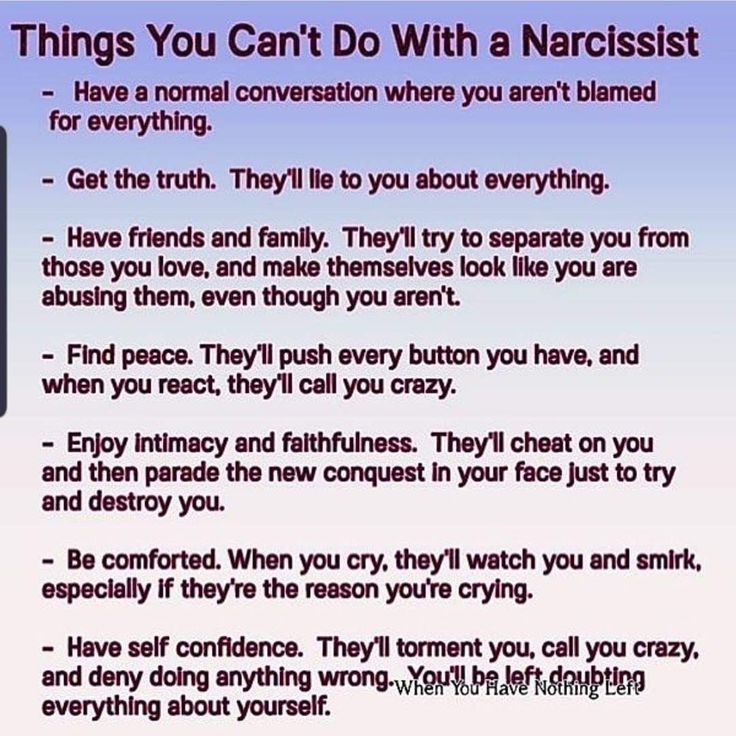
This sounds really unpleasant, and it was, but it did fill the time. Now that no one is doing that, there's a big, empty void in your days. Life just isn't as exciting anymore.
To cope, keep trying new interests and activities, and make an effort to connect with your friends as much as possible. When you do stay home, meditate to calm your mind. Know that you don't need to always look outside for fulfillment; it can be found within.
5.
Don't blame yourself
Now that you can clearly see your ex for the narcissist they were and recognize how unhealthy those patterns you participated in for all that time were, you probably feel ashamed that you let the wool be pulled over your eyes for so long. You may wonder how could you be so "naive," "stupid," or "gullible." You may especially feel ashamed when you are with family or friends who were tuned in long before you were.
Give yourself a pass. Narcissists are experts at seduction, and you're only human. Perhaps you have some codependency and self-esteem issues you'll need to examine when you're in a better place, but for now, just forgive yourself.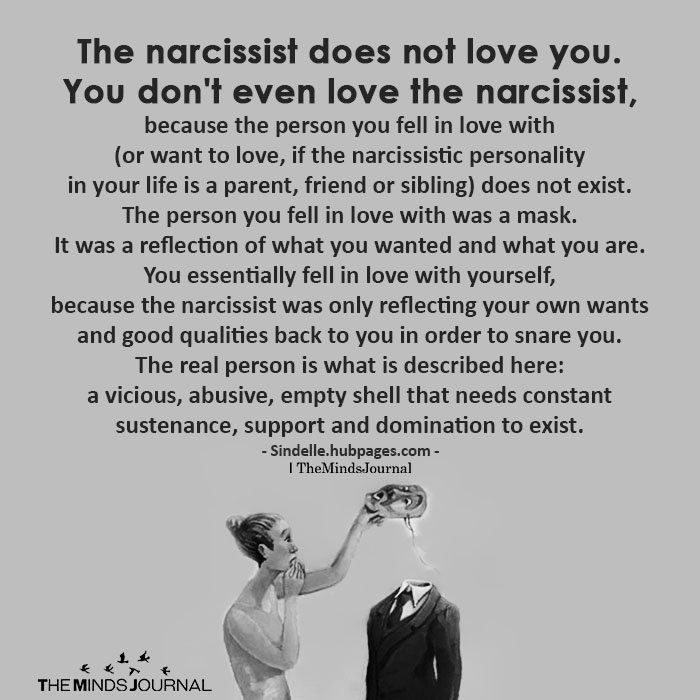
Know that your innocence is a good thing. It means you have an open and trusting heart—something your narcissist struggles with.
Advertisement
This ad is displayed using third party content and we do not control its accessibility features.
6.
Focus on self-love
Since one of the narcissist's strategies is to put others down to elevate themselves, it’s unlikely you ever heard any compliments, support, or appreciation once the seduction phase wore off. You may have suffered verbal abuse as well.
Narcissists want you to stay insecure, so feeling sure of yourself is foreign territory for you right now. You may have also lost trust in your own judgment as a result of being gaslighted for so long.
Where to begin healing from all this? There are therapists, self-help programs, and groups that can help you focus on self-love, which is what you need to practice in order to restore your self-esteem post-breakup. Try to find a regular meetup with a group of people working on the same type of personal growth you're interested in.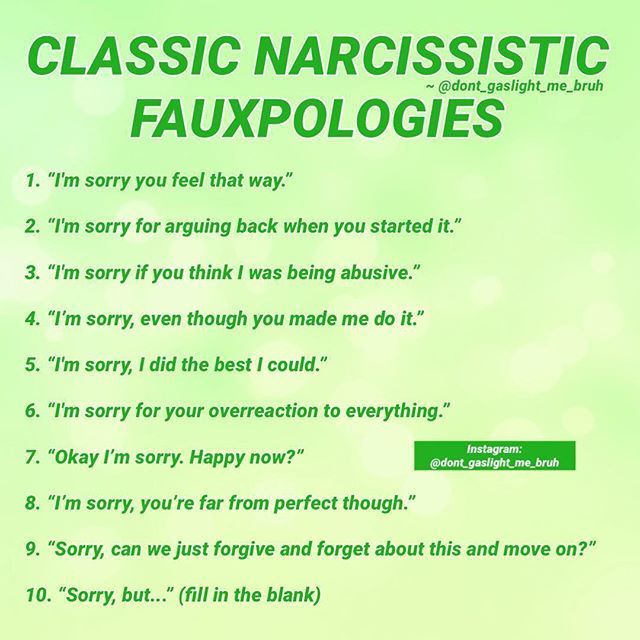
7.
Prioritize your pleasure
Research shows that many dysfunctional relationships rely on sex because intimacy and emotional fulfillment aren't available. Narcissists especially like to use sex as a power tool because they are junkies for desire; they need to be wanted.
The way they maintain your desire is by doling out sexual "affection" according to their own power-driven agenda. So if your relationship was hot, you're still going to want them sexually. It's just a fact.
How to cope? Pick out a good vibrator. That piece of plastic isn't any more devoid of human love, empathy, or compassion than your emotional vampire of an ex was.
Advertisement
This ad is displayed using third party content and we do not control its accessibility features.
8.
Acknowledge your jealousy
Most narcissists replace their exes within weeks—if not days—of breaking up, often from a stable they've kept full throughout your relationship. Remember, they must have a source of energy to feed on at all times. They always make sure their supply is secure.
They always make sure their supply is secure.
Since they struggle with healthy attachment and authentic feelings of connection, you might feel like you are merely an arrangement that ceased to be convenient when you stopped accepting abuse. Whomever they trap next will simply be a better business deal.
When you feel jealousy, remind yourself that those poor people are getting set up the way you were and are sure to suffer in the long run. Convert your jealousy into compassion for them.
9.
Stop looking back
If you stayed with your narcissist for any length of time, you may be looking back and wondering why you wasted so much time on them. And if you racked up a bunch of debt for them or had their kids, you've got a lot more than wasted time on your plate.
The important thing is that you made it out. Try to stop looking back and keep my sights set on what I am creating for my future. As any wise elder will tell you, it's impossible to get through a human life without any regrets.
10.
Let yourself grieve
All the above steps will not relieve your aching heart, but it will change behaviors and put new dynamics in motion to help you avoid backsliding. The healing of the human heart is a long and tender process known as grieving, which comes and goes, sometimes for years.
Take time to honor your grief by going beneath your anger and finding the sadness. As you comfort yourself, acknowledge the process of welcoming yourself back home.
Feel grateful for the emotions you had to keep bottled up for years—even the difficult ones. They can now bubble up because you're finally with someone who loves and accepts all of you—yourself!
RELATED: 8 Types Of Narcissists & How To Distinguish Them
My own final encounter with my ex showed me exactly why this mandate is so important for these types of breakups. Suffering with many of the feelings listed above, I convinced myself that I missed my narcissist as a friend.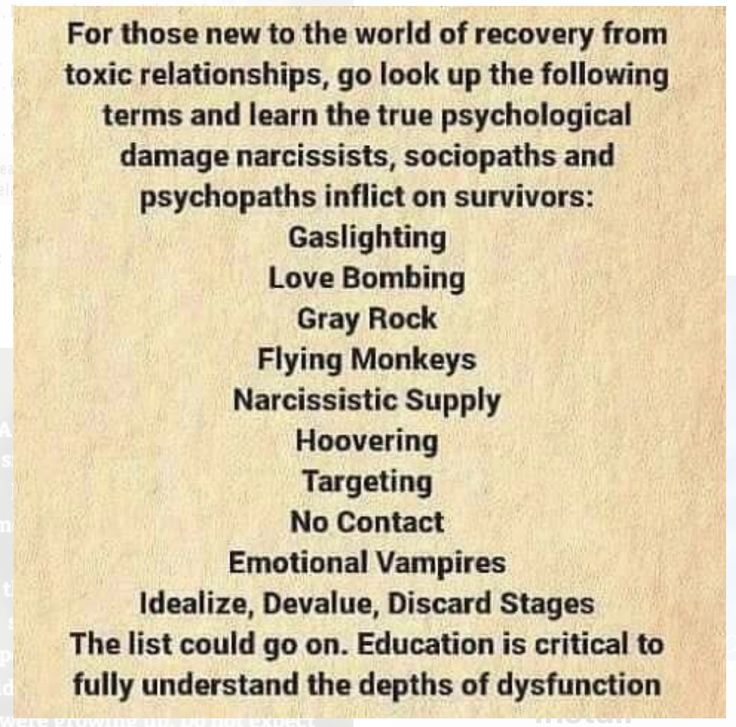 I actually believed that if we could convert our relationship to a friendship, all would be well, so I sent him a text and he came over.
I actually believed that if we could convert our relationship to a friendship, all would be well, so I sent him a text and he came over.
When he started in with his usual self-absorbed, entitled routines, I wasn't surprised; I had seen them a million times. What did shock me, however, was how easily I flipped right back into scurrying around, fetching him this and that, tiptoeing, soft-pedaling, rationalizing, even lying … you name it, I did it. Within the first hour, I lost all the gains I thought I had secured over the months since our breakup. My self-respect, inner knowing, integrity, power, and boundaries all flew out the window in the face of his allure. I almost fell for his sexual seduction, but somehow I repeatedly said no until he finally left.
As soon as he was out the door, I started hating him. I remember this pattern from when we were "together." I only felt drawn to him when we were in each other's presence; as soon as he was gone, I would start to doubt and despise the whole thing and my role in it (that was my gut speaking to me, of course). After this last encounter, it took me an entire week to shake off his slime and begin feeling like myself again.
After this last encounter, it took me an entire week to shake off his slime and begin feeling like myself again.
Preparing yourself with ways to get through your low moments is totally worth it. You don't need to set yourself back like I did. Just keep on truckin' ahead, and eventually you will re-become the person you were before you ever fell into the narcissist's trap. Only you'll be wiser, stronger, and better for having conquered it. Use this breakup as a learning experience for knowing your own worth, and focus on your own personal growth.
RELATED: 6 Steps To Recovering From Narcissistic Abuse
Toxics, narcissists and gaslighters: simple tricks to counter them
Understand
Shahida Arabi has been studying behavior strategies for victims of bullying and abusive behavior for several years.:max_bytes(150000):strip_icc()/Narcissistic-abuse-recovery-challenges-and-treatment-5210945_final_rev_02-e8637393b06a48d0a35e3e87ee0bbcf3.jpg) She is the author of several bestselling books on how to stop manipulators, gaslighters, and narcissists from doing what they are so good at. Summer at the publishing house "Mann, Ivanov and Ferber" her book Toxic People is out. Inc. publishes an excerpt.
She is the author of several bestselling books on how to stop manipulators, gaslighters, and narcissists from doing what they are so good at. Summer at the publishing house "Mann, Ivanov and Ferber" her book Toxic People is out. Inc. publishes an excerpt.
Pointless arguments and distractions in conversation
Malignant narcissists use many distractions in conversation to unsettle you and drag you into their chaos. These may include the following tactics:
Passing on personalities and undermining reputation. When narcissists cannot logically refute your argument or point of view, they resort to personal attacks: use illogical reasoning, insults, projection, and gaslighting to confuse and confuse you if you just disagree or challenge them. This is done in order to discredit and confuse you, divert you from the main problem and make you feel guilty about the fact that you are a living person with thoughts and feelings that are different from their own. Ten minutes of arguing with a narcissist is enough, and you are already wondering how you even got involved in this. You just expressed disagreement with his ridiculous statement that the sky is red, and now your entire childhood, family, friends, morality, career and lifestyle are mixed with dirt. This is because your disagreement conflicts with his false belief that he is all-powerful and all-knowing, threatening his inflated ego and sense of his own superiority. Instead of responding to your arguments, he attacks your personality.
Ten minutes of arguing with a narcissist is enough, and you are already wondering how you even got involved in this. You just expressed disagreement with his ridiculous statement that the sky is red, and now your entire childhood, family, friends, morality, career and lifestyle are mixed with dirt. This is because your disagreement conflicts with his false belief that he is all-powerful and all-knowing, threatening his inflated ego and sense of his own superiority. Instead of responding to your arguments, he attacks your personality.
How to resist becoming personal. By far the best reaction is none, but if for some reason you are forced to respond to the narcissist's attacks, don't fall for his red herrings. Repeat the facts and let him know that personal attacks are not relevant. Stop this conversation if possible. You do not have to explain to an adult how to be a worthy person. Remember: toxic people are not arguing with you, they are, in fact, arguing with themselves, and you are just an accomplice in their long, exhausting monologue.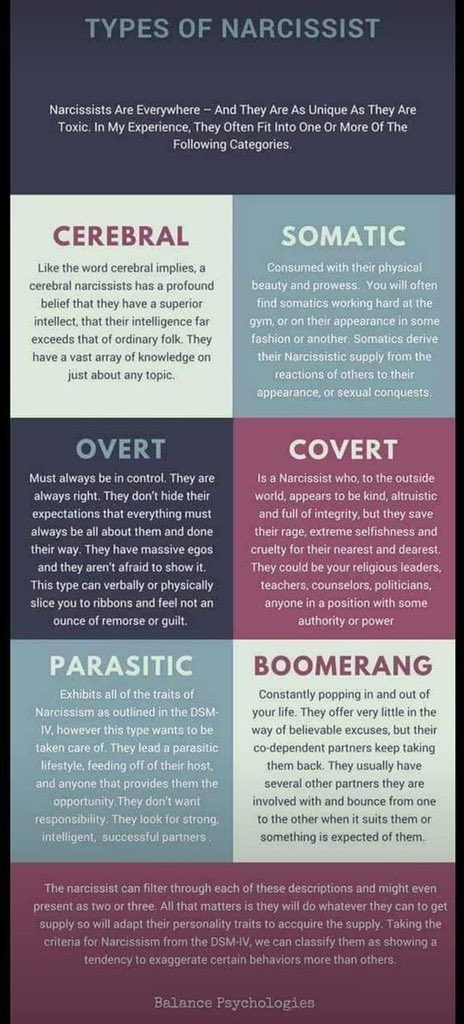 They love drama and live to create chaos. By trying to find an argument to refute their ridiculous claims, you are providing narcissistic reinforcement. Don't feed the narcissists - better realize that the problem is not with you, but with their abusive behavior. Stop communicating as soon as you feel the first signs of an escalation of the situation, and spend your energy on self-care and self-defense.
They love drama and live to create chaos. By trying to find an argument to refute their ridiculous claims, you are providing narcissistic reinforcement. Don't feed the narcissists - better realize that the problem is not with you, but with their abusive behavior. Stop communicating as soon as you feel the first signs of an escalation of the situation, and spend your energy on self-care and self-defense.
Labeling. As you know, daffodils make an elephant out of a fly in case of any threat to their superiority. In their reality, only they can be right, and anyone who dares to disagree will become the cause of narcissistic rage. According to psychiatrist Mark Goulston, this is not a result of low self-esteem, but a sense of permissiveness and a false sense of superiority. He writes: “In the eyes of the narcissist, the whole world must approve, adore, obey and agree with him. Anything less is perceived as an attack, which, in the opinion of the narcissist, he is entitled to respond with anger. For the most base representatives of this type, rage takes the form of labeling when they fail to influence your opinion or emotions in any other way. They feel entitled to humiliate and call you names. Name-calling is a quick and easy way to humiliate your intelligence, appearance or behavior, while depriving you of the right to be a person with your own opinion. This tactic can also be used to criticize your beliefs, opinions, and ideas. Your personal life experience, reasoned point of view, or reasoned opinion suddenly becomes "stupid" or "idiot" in the hands of an aggressive narcissist who feels threatened but can't really object. Narcissists insult your intelligence to cover up their incompetence. Instead of attacking your arguments, the narcissist attacks you in every possible way to undermine your authority and question your intelligence.
For the most base representatives of this type, rage takes the form of labeling when they fail to influence your opinion or emotions in any other way. They feel entitled to humiliate and call you names. Name-calling is a quick and easy way to humiliate your intelligence, appearance or behavior, while depriving you of the right to be a person with your own opinion. This tactic can also be used to criticize your beliefs, opinions, and ideas. Your personal life experience, reasoned point of view, or reasoned opinion suddenly becomes "stupid" or "idiot" in the hands of an aggressive narcissist who feels threatened but can't really object. Narcissists insult your intelligence to cover up their incompetence. Instead of attacking your arguments, the narcissist attacks you in every possible way to undermine your authority and question your intelligence.
How to resist labeling. It is important to stop any offensive interaction and convey to the opponent that you do not intend to tolerate this. The situation will only get worse. Do not take it personally: understand that a person resorts to insults only because he does not know other, more worthy ways of communication. You can do the following:
The situation will only get worse. Do not take it personally: understand that a person resorts to insults only because he does not know other, more worthy ways of communication. You can do the following:
- If labeling is frustrating for you, use mindful breathing techniques to calm yourself and focus on the best ways to protect yourself in your circumstances.
- If a family member or partner uses this tactic against you during a discussion, say firmly that you are not going to tolerate such disrespect and end the conversation safely.
- If this is happening in the context of harassment or harassment by a former partner, save the evidence in case it is needed to file a criminal case.
- If you are labeled in a professional environment, consider whether you can bring this to the attention of your superiors.
- If you encounter an incident on the Internet, report it to the relevant social network service and block the aggressor. Save screenshots if the person continues the cyberstalking.
Save screenshots if the person continues the cyberstalking.
Large-scale generalizations. Instead of dealing with real problems, narcissists prefer to make sweeping generalizations if we dare to claim mistreatment. These generalizations include exaggerating your hypersensitivity or sweeping statements like "You're never satisfied" or "You're always overreacting." This tactic can be especially powerful with empathic people, as it uses gaslighting to instill the idea that our hypersensitivity is the problem, not their violence. And while you can be overly sensitive at times, it's much more likely that a destructive person is insensitive and cruel most of the time.
How to deal with big generalizations. Toxic people who wield superficial statements do not represent the fullness and all the nuances of reality. They express a distorted point of view based on their own self-centered intentions. Stick to the truth and try to resist generalizations, because this is just a form of completely illogical black and white thinking. Depending on how receptive you think the person is to feedback, you might say, "You're generalizing. There were many examples of the opposite." However, the more toxic the person, the more likely you are to get bogged down in pointless arguments designed to throw you off balance. Try not to fall into this trap, but stick to the primary statement you are trying to convey and end the conversation if the person stoops to personal attacks.
Stick to the truth and try to resist generalizations, because this is just a form of completely illogical black and white thinking. Depending on how receptive you think the person is to feedback, you might say, "You're generalizing. There were many examples of the opposite." However, the more toxic the person, the more likely you are to get bogged down in pointless arguments designed to throw you off balance. Try not to fall into this trap, but stick to the primary statement you are trying to convey and end the conversation if the person stoops to personal attacks.
Deliberately distorting your point of view to the point of absurdity. If you dare to disagree with a narcissist, your differences of opinion, emotions, and real experiences turn into character flaws and "evidence" of your irrationality and inability to think critically. This common cognitive bias is called "mind reading." Toxic people claim to know your thoughts and feelings. They regularly jump to conclusions based on their own reactions instead of rationally assessing the situation. These discrepancies may be based on their own illusions and delusions, as well as the need to purposefully unsettle you and divert attention from the problem. Narcissists make up all sorts of tall tales that distort your real words, and as a result, your thoughts look absurd or just monstrous. Instead of acknowledging your emotions, the narcissist distracts you with unimaginable accusations. For example, you point out to a toxic partner that you don't like their way of communicating. In response, he distorts your words: “And you, then, are perfection itself?” or “So you think I’m bad?” - although you just expressed your feelings. Or he may begin to criticize your character, saying: “So you mean to say that I should not have an opinion. You love to be in control too much!” This gives them the opportunity to revoke your right to think and feel about their inappropriate behavior and instills guilt in you when you try to set boundaries.
They regularly jump to conclusions based on their own reactions instead of rationally assessing the situation. These discrepancies may be based on their own illusions and delusions, as well as the need to purposefully unsettle you and divert attention from the problem. Narcissists make up all sorts of tall tales that distort your real words, and as a result, your thoughts look absurd or just monstrous. Instead of acknowledging your emotions, the narcissist distracts you with unimaginable accusations. For example, you point out to a toxic partner that you don't like their way of communicating. In response, he distorts your words: “And you, then, are perfection itself?” or “So you think I’m bad?” - although you just expressed your feelings. Or he may begin to criticize your character, saying: “So you mean to say that I should not have an opinion. You love to be in control too much!” This gives them the opportunity to revoke your right to think and feel about their inappropriate behavior and instills guilt in you when you try to set boundaries.
How to respond to such distortions. The best way to draw a clear line is to repeat, if necessary, “I didn’t say that. Don't speak for me." If the person continues to accuse you of things you didn't do or say, end the conversation. Don't let the toxic person shift the blame and divert the conversation away from their own destructive behavior or make you feel ashamed for daring to speak the truth.
If you cannot avoid interacting with someone (for example, at work), briefly and to the point describe what you did or said and end the conversation.
Change of subject to escape responsibility. I call this maneuver the “And you?” syndrome. It implies a digression from the topic under discussion in order to direct attention to a completely different one. Narcissists don't feel like discussing their personal responsibility, so they divert the conversation to avoid the consequences. Do you complain that he does not devote time to children? He will remind you of the mistake in their upbringing that you made ten years ago. Are you making it clear that his lies are unacceptable? He will mark the moment when you resorted to innocent deception in order not to attend a family event. This maneuver has no temporal or thematic limits and often begins with the words: “What about the time you did it?”
Do you complain that he does not devote time to children? He will remind you of the mistake in their upbringing that you made ten years ago. Are you making it clear that his lies are unacceptable? He will mark the moment when you resorted to innocent deception in order not to attend a family event. This maneuver has no temporal or thematic limits and often begins with the words: “What about the time you did it?”
How to avoid this maneuver. Don't get distracted. If the toxic person tries to switch things up, use the broken record method described above: keep repeating the facts without going off topic. Move the arrows back, say: “I'm not talking about that now. Let's concentrate on the problem that is relevant at the moment."
Lure and feigned innocence. Toxic people create a false sense of security in order to be even more destructive in their cruelty. Common tactics include provocative remarks, hurtful jokes, labeling, offensive accusations, and unfounded generalizations.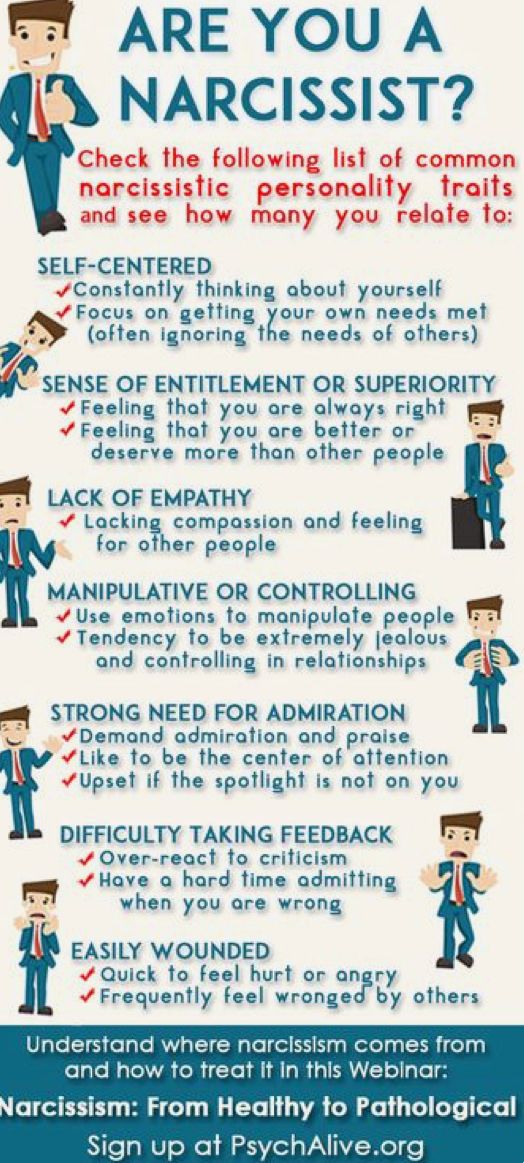 A toxic partner may make a casual comment about a co-worker's good looks or make an inappropriate joke about wanting to have an affair. This is a ploy to test your reaction. Once such a person drags you into a senseless, random quarrel, and it will grow like a snowball, because he does not know sympathy and remorse for tactless behavior. Ordinary disagreement can be a bait, and even if you initially hold back as politeness, you will quickly realize that it is driven by a malicious desire to humiliate you. Hidden humiliation disguised as a joke is a way to get deep into your soul, while avoiding responsibility. Such aggressive injections under the guise of a joke skirmish allow the manipulator to say the most terrible things, while maintaining outward innocence and equanimity. However, every time you are outraged by an insensitive, blunt comment, you are accused of having no sense of humor. After all, it's just a joke! Not at all. This is a way to use gaslighting to make you think that such verbal abuse is just a joke: a way to distract you from your opponent's brutality at the expense of your receptivity.
A toxic partner may make a casual comment about a co-worker's good looks or make an inappropriate joke about wanting to have an affair. This is a ploy to test your reaction. Once such a person drags you into a senseless, random quarrel, and it will grow like a snowball, because he does not know sympathy and remorse for tactless behavior. Ordinary disagreement can be a bait, and even if you initially hold back as politeness, you will quickly realize that it is driven by a malicious desire to humiliate you. Hidden humiliation disguised as a joke is a way to get deep into your soul, while avoiding responsibility. Such aggressive injections under the guise of a joke skirmish allow the manipulator to say the most terrible things, while maintaining outward innocence and equanimity. However, every time you are outraged by an insensitive, blunt comment, you are accused of having no sense of humor. After all, it's just a joke! Not at all. This is a way to use gaslighting to make you think that such verbal abuse is just a joke: a way to distract you from your opponent's brutality at the expense of your receptivity. Having lured you with a seemingly innocent comment, they begin to play with your emotions. Remember: narcissists know your vulnerabilities, weaknesses, they know what unpleasant phrases will undermine your self-confidence and what topics will open old wounds. They use this knowledge to provoke you. After you swallow the bait whole, the narcissist will calm down and innocently ask if you're okay, assuring that he "didn't mean" to disturb you. This feigned innocence takes you by surprise and makes you believe he didn't really mean to hurt you, until it starts to happen so often that you can no longer deny his obvious intentional cruelty.
Having lured you with a seemingly innocent comment, they begin to play with your emotions. Remember: narcissists know your vulnerabilities, weaknesses, they know what unpleasant phrases will undermine your self-confidence and what topics will open old wounds. They use this knowledge to provoke you. After you swallow the bait whole, the narcissist will calm down and innocently ask if you're okay, assuring that he "didn't mean" to disturb you. This feigned innocence takes you by surprise and makes you believe he didn't really mean to hurt you, until it starts to happen so often that you can no longer deny his obvious intentional cruelty.
How not to fall for the bait. Watch out if you are bothered by some rude comment, if someone is playing devil's advocate or inappropriately joking. There is usually a reason for this. This will help to understand at what point they are trying to catch you, and will allow you to stop communication as soon as possible. Trust your intuition: if even after the interlocutor has explained what was said, you feel that you have been humiliated, this is a signal to slowly comprehend the situation before reacting. Not everyone is able to express their disagreement respectfully. Remain vigilant and beware of a possible escalation of the conflict.
Trust your intuition: if even after the interlocutor has explained what was said, you feel that you have been humiliated, this is a signal to slowly comprehend the situation before reacting. Not everyone is able to express their disagreement respectfully. Remain vigilant and beware of a possible escalation of the conflict.
Instead of responding directly to the bait, say something like "That's interesting" and end the conversation.
This leaves almost no chance to continue the conversation and does not give the manipulator the emotional response he expects. Certainly, such situations will be repeated. Some toxic people will continue their provocation without even getting any emotional response. In this case, it is important to be able to stand up for yourself and make it clear that you will not tolerate such behavior and immediately end the conversation, finally breaking off the relationship.
Trying to answer manipulative people to their hidden provocations can lead to further gaslighting, but stick with your opinion that their behavior is not normal.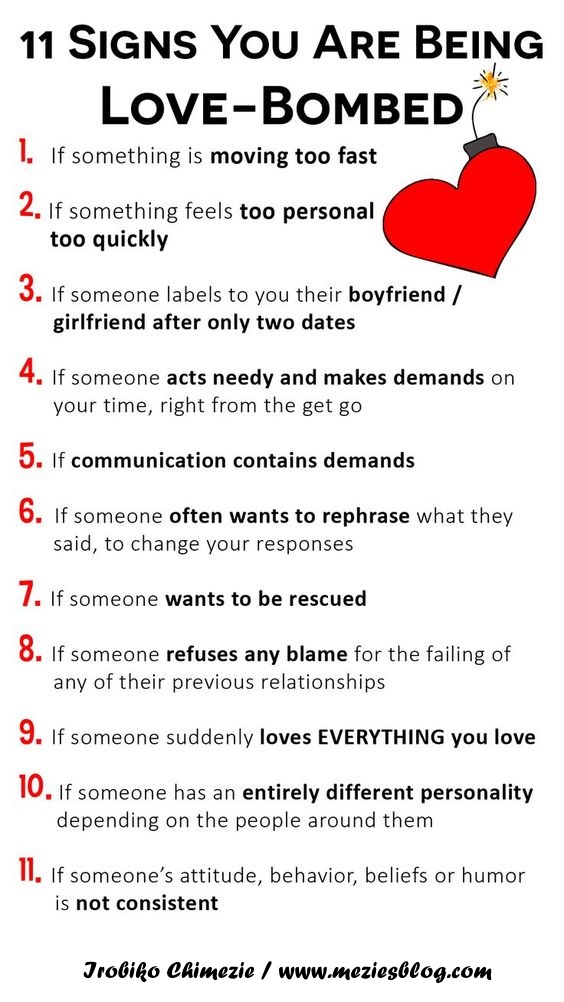 Be firm by breaking contact with the person who provokes you and encourages you to an emotional reaction. Given your hypersensitivity, it cannot be said that you are "too" sensitive to the provocations of an insensitive person. Your reactions are justified. Trust yourself.
Be firm by breaking contact with the person who provokes you and encourages you to an emotional reaction. Given your hypersensitivity, it cannot be said that you are "too" sensitive to the provocations of an insensitive person. Your reactions are justified. Trust yourself.
How to use the cleaning method when interacting with a narcissist
Description. If you need to describe the situation to the narcissist, refrain from overly emotional statements and deal with facts, this will help avoid direct confrontation. If possible, use email or text messages to be able to save correspondence. Narcissists feed on your emotional reactions and love to provoke hypersensitive people. Less emotional receptivity is part of a larger technique known as the "grey stone method." It was invented by the victim of a psychopath - a blogger named Skylar. The essence of this technique is that you begin to play the role of an "inconspicuous gray stone" so that the narcissist stops noticing you and does not seek to actively manipulate you, similar to how a hunted animal pretends to be dead to avoid being pursued by a predator.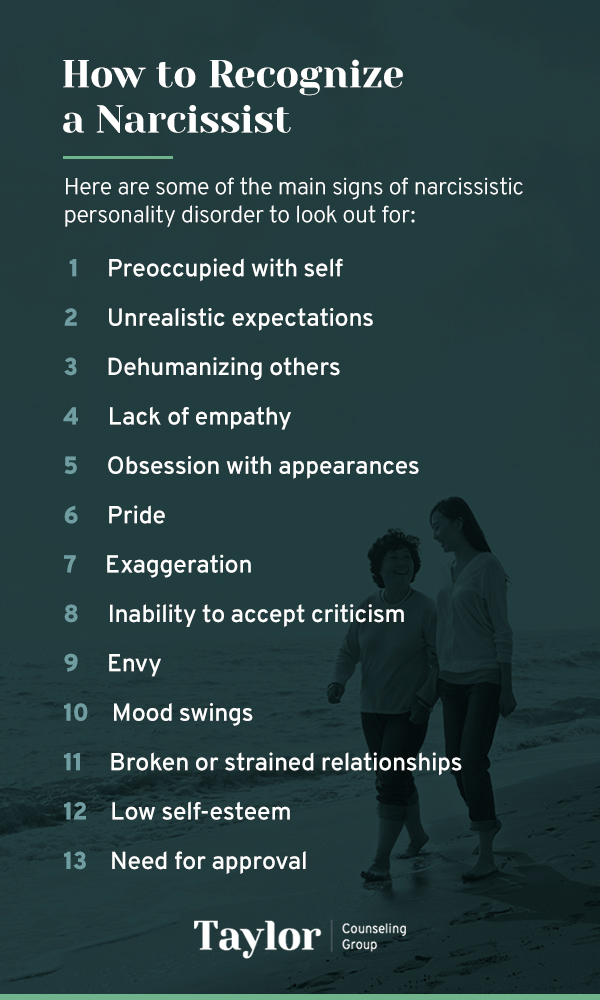 Using less emotional language can help you a lot, because in this case, the narcissist will not get much return from you and will switch to a more accessible victim of provocation and manipulation. In this case, it is effective to use a calm, reserved, or even unemotional tone of voice when presenting facts, or to give short and dry answers when exchanging text or email messages.
Using less emotional language can help you a lot, because in this case, the narcissist will not get much return from you and will switch to a more accessible victim of provocation and manipulation. In this case, it is effective to use a calm, reserved, or even unemotional tone of voice when presenting facts, or to give short and dry answers when exchanging text or email messages.
Clear wording. When you explain what the narcissist's behavior problem is, it's important to turn the attention away from yourself and onto the possible consequences. Example: "If you do not stop looking for contact with me, I will have to involve law enforcement." Or you can say directly: "Stop following me." You should do this by email or text message in order to be able to save the correspondence.
Use of boundaries. Express your wish directly, but only once via electronic communication channels. For example, if a married man is looking for communication with you, you can write to him: “I do not start relationships with married people. Please don't mess with me again." If he continues to disturb you, you can block his number and social media accounts. If he uses anonymous accounts or multiple phone numbers, save all information: it may be required for legal purposes.
Please don't mess with me again." If he continues to disturb you, you can block his number and social media accounts. If he uses anonymous accounts or multiple phone numbers, save all information: it may be required for legal purposes.
Thank you. In most cases, when interacting with a narcissist, you should not say words of gratitude: do not put your finger in his mouth - he will bite off his whole hand. However, you can pay attention to your needs. If you need to negotiate in a situation where you cannot permanently end the relationship (for example, at work), find a way to meet your needs in one way or another. For example, if a colleague asks you to do most of the work on a project, tell him that you will do your half after he finishes his. Make sure that there is a factor of responsibility or reciprocity so that the person understands that his needs will be met only after yours.
Hardness. Stick to the facts and your goals, regardless of all the manoeuvres, by which the narcissist tries to manipulate you. For example, if you are gaslighted, you can use the broken record method and repeat the same thing. Another option is not to say anything at all, cut off communication with this person and just remind yourself of the real state of things. Bringing yourself back to reality is just as important, if not more so. You don't need the narcissist's permission to end this interaction and take care of yourself.
For example, if you are gaslighted, you can use the broken record method and repeat the same thing. Another option is not to say anything at all, cut off communication with this person and just remind yourself of the real state of things. Bringing yourself back to reality is just as important, if not more so. You don't need the narcissist's permission to end this interaction and take care of yourself.
Compromise. As a general rule, narcissists are incapable of expressing disagreement peacefully, so don't count on honest negotiations with them. They will be furious if you threaten their sense of permissiveness. However, it is important to find unity with your goals, establish contacts with supportive people, connect external resources and expand your capabilities. No matter how vehemently they push your boundaries, keep doing what you do that is good for you and don't let them get away with it. As you observe and gather information about what is happening, keep all the evidence and remember that the narcissist rarely keeps his word. Strive to achieve wholeness within yourself and steadfastly resist the emotional manipulation that the narcissist is sure to use to get his way.
Strive to achieve wholeness within yourself and steadfastly resist the emotional manipulation that the narcissist is sure to use to get his way.
Active show of force. Faking confidence even when you don't feel it is even more important when interacting with a narcissist who is constantly looking for any vulnerabilities. Avoid direct confrontation whenever possible. If that's not possible, use this interaction to boost your confidence. Get a third party to mediate, witness, or give you courage. If you are usually a quiet and gentle conversationalist, in this case, speak in a firm, dry and unshakable tone. If it helps you, take a "strong posture". Maintain eye contact.
Exit strategy
If you suspect you are dealing with a narcissist, implement the steps below. You can use the acronym SUPPORT to remind yourself of your options for getting out of a situation:
About review instead of blame.
P gradual disappearance.
About tvorka.
P relationship breakup and safe departure plan.
A careful observation instead of reaction.
Review instead of blame. Narcissists show their true nature more quickly if they think you have no idea who they really are. A direct confrontation with the narcissist will lead to further manipulation and narcissistic rage, which will get you even more stuck in the cycle of violence. If you suspect that a narcissist is around you, the best option is to mentally prepare for the end of the relationship, while collecting as much information as possible about his character. For example, if you are planning a divorce with a narcissist, do not tell him about it until you have completed all the necessary things: consulting with a divorce lawyer who specializes in working with conflict personalities, contacting a financial adviser who will help you deal with debts and a budget, studying guardianship legislation, opening a separate bank account and finding a place to live.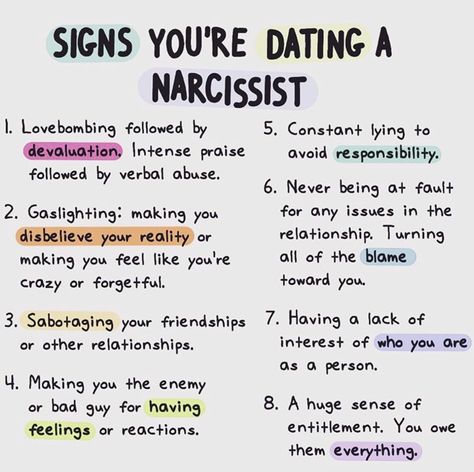 Watch for red flags, and when you notice them, build self-worth by not relying on the narcissist's claims (which will most likely consist of pathological lies, gaslighting, projections, and understatements). His actions and patterns of behavior will tell you much more than any words.
Watch for red flags, and when you notice them, build self-worth by not relying on the narcissist's claims (which will most likely consist of pathological lies, gaslighting, projections, and understatements). His actions and patterns of behavior will tell you much more than any words.
Fading out. Narcissists go berserk when they are ignored and rejected. But instead of directly rejecting them, you can gradually disappear from their lives. Pretend that everything is as usual, but gradually spend less and less of your energy and time on them. Stick to monosyllabic and dry answers in conversations. Step by step, reduce your contribution to the person so that he gets used to the fact that you are not always around. Narcissists cannot stand the lack of attention, so they will try to get narcissistic reinforcement elsewhere.
Excuse. As you gradually disappear from the narcissist's life, it is important to have a convenient excuse—something he finds plausible enough to explain your withdrawal without realizing that you are actually pushing him out of your life.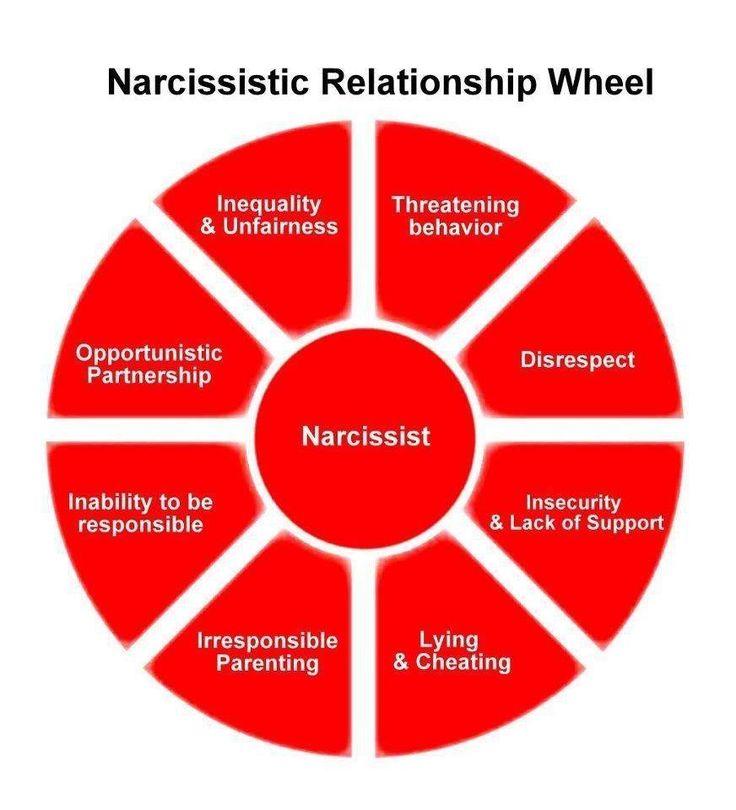 Pretend to be very busy with a work project, emphasize how hard you are working on a term paper, talk about a new task that takes up your time. If this causes more rage, move on to the next step.
Pretend to be very busy with a work project, emphasize how hard you are working on a term paper, talk about a new task that takes up your time. If this causes more rage, move on to the next step.
Relationship breakdown and safe exit plan. Ultimately, you will need a safe escape plan. Speak with a counseling psychologist, your company's human resources officer, or a domestic violence lawyer to develop an escape plan. Depending on the nature of your relationship with the narcissist and whether or not you live together, you may not have to organize as many activities as it seems.
Careful observation instead of reaction. If you are forced to interact with the narcissist even after the breakup (for example, in the case of co-parenting or at family events), you need to keep your emotions under control. As you already know, narcissists love to provoke you. Notice manipulation tactics, give them names, but do not show the expected reactions.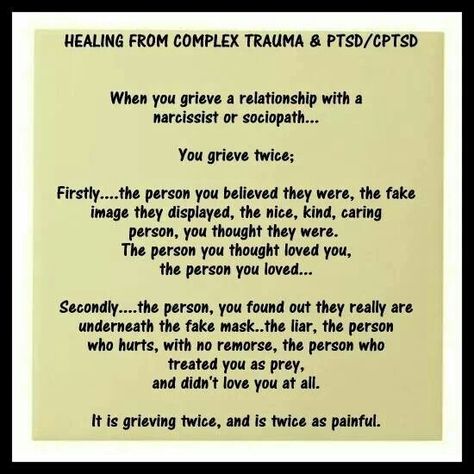 Take a conscious breath and switch to taking care of yourself. Understand exactly what they expect from you, and you will find emotional freedom from their maneuvers.
Take a conscious breath and switch to taking care of yourself. Understand exactly what they expect from you, and you will find emotional freedom from their maneuvers.
in the hell of destructive relationships and impossible intimacy
Main signs of malignant narcissism:
What you may have heard: "It's good that you take time for yourself, but I would like you to think about how it negatively affects me when you are not around."
Their goal: to make you feel guilty. They seek to make you dependent on them.
Since they are sure that they are excellent personalities, they believe that you should not spend time outside of relationships with them, instead you should focus entirely on them. Malignant narcissists have no doubts that they are better than anyone else and it is almost impossible for them to accept when you try to have your own interests or relationships outside of your social circle with them.
If you leave them alone, they manipulate you with guilt and often insist that you spend more time together. However, these efforts are not always reciprocated: victims of the narcissist may notice that they stay at home alone much more often than their toxic partner.
This is because narcissists often view their partners as safe havens, a kind of psychic retreat; they are afraid that the partner will cease to serve their needs as soon as he finds an interesting hobby, new friends or a support group, begins to enjoy his own life and enjoy activities outside of the relationship with a malignant narcissist.
2. Hidden insecurity
Example: underestimate or completely devalue the achievements and merits of a partner and other people.
What you might have heard: "What you've achieved with this project is pretty cool, but I don't think it's original."
Their goal: is to make you believe how smart and original they are.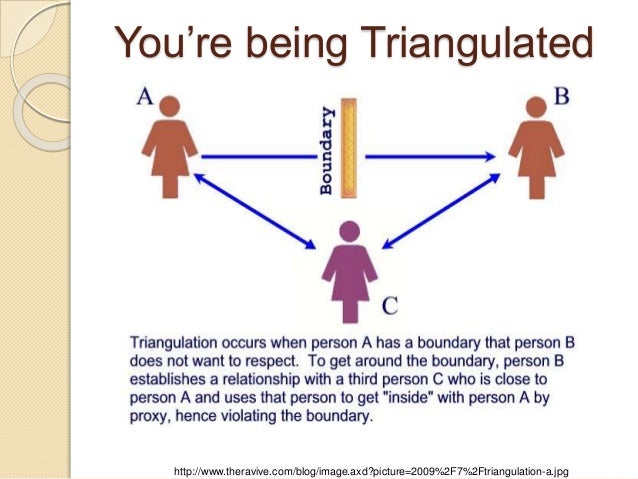
They do their best to make you feel that they are the source of everything for you. They are competitive and always want to impress you, even if the situation has nothing to do with them.
Although most malignant narcissists strive to be leaders, they do not always achieve this goal. Those who do not find themselves in high positions often endure painful disagreements caused by how they see themselves without taking into account their own true skills in reality.
To make up for this, malignant narcissists will downplay or discount your progress and achievements. Some may go even further, telling you that you could never have achieved your goals without their help.
These people constantly seek to destroy others and have no problem doing so.
3. Psychological bullying (bullying)
Example: criticism and depreciation of everything you do.
What you might have heard: "I'm just trying to make you better. "
"
Their goal: to make you feel that you need their advice for every aspect of your life. Bullying is a malevolent pleasure for malignant narcissists because they truly believe that they are turning you into the best version of yourself. Such constant attempts to "improve" you and the criticism you face can be a clear sign that you are dealing with a malignant narcissist.
These people believe they set the standard for attractiveness, good behavior, and well-being, so they insist on trying to impose it on everyone else.
In a relationship with a narcissist, this often manifests itself in physical abuse, the imposition of their, most often absurd, arguments on you, as well as in derogatory criticism. At times you feel like you're walking on eggshells and hesitate to stand up for your own position because you're afraid they'll always find something to say about it. As a result, you try to remain calm, giving up your own desires, in order to maintain peace in the relationship.
